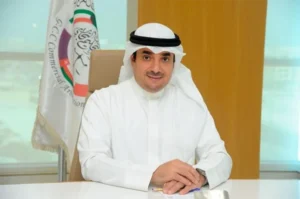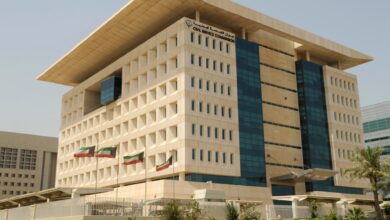Kuwait, US relations anchored by history, friendship, shared values

By Tareq Yousef Al Shumaimry
Relations between Kuwait and the United States are based on centuries-old ties that were cemented by friendship and compassion between the two peoples. The establishment of the first hospital in Kuwait by American missionaries in 1911, referred to as ‘Mushtashfa Amricani’ (American Missionaries Hospital) further strengthening these ties.
Anchored in history, the partnership between the two countries pivots today on the twin axis of reciprocity and adaptability that enable them to adroitly navigate issues vital to regional stability, global peace, and mutual prosperity. Kuwait and the United States established diplomatic relations shortly after Kuwait gained independence from Great Britain in 1961.
The bonds binding Kuwait and the US were further consolidated in 1990-91 during the brutal Iraqi invasion of Kuwait, when the US support was vital in driving out the invading forces and liberating Kuwait. The US leadership in restoring Kuwait’s sovereignty and ensuring the security of its borders since then have reinforced the status of the US as a trusted and steadfast ally of Kuwait.
The deeply-rooted relations with Kuwait and US commitment to the security and sovereignty of Kuwait were stressed by the United States Ambassador H.E. Karen Sasahara. Speaking at the US Embassy reception held to mark the 248th US Independence Day last year, Ambassador Sasahara emphasized that the US would remain a strategic partner for Kuwait in a variety of domains, especially security.
The continued US support to Kuwait security was further reiterated in November 2024 by then President-elect Donald Trump immediately after he won the US presidential elections. This came during a telephonic discussion with His Highness the Amir Sheikh Meshal Al-Ahmad Al-Jaber Al-Sabah, who called to congratulate the President-elect on his election victory. Thanking His Highness the Amir for his nice sentiments, President-elect Trump praised the strong friendship between both countries as allies that stood the test of time.
He said he was looking forward to strengthening the bilateral relationship, and reaffirmed the ironclad support of the US to the security and stability of Kuwait. For his part, His Highness the Amir highlighted the deep-rooted distinguished ties between the State of Kuwait and the United States, and expressed aspiration for even deeper cooperation within the framework of the strategic partnership between both states.
That relations between Kuwait and the US at the leadership level are not just a shimmer in the pan was further underlined last February. To mark the 34th anniversary of Kuwait’s liberation from the Iraqi invasion, Kuwait Petroleum Corporation (KPC) and the Ministry of Foreign Affairs jointly hosted a dialogue session at the Saud Al-Nasser Al-Sabah Diplomatic Institute. The event featured Dr. Richard Haass, former special assistant to the late US President George H.W. Bush, and Sheikh Nawaf Al-Saud Al-Sabah, Vice Chairman and CEO of KPC.
During the session, Dr. Haass highlighted how critical decisions are made in times of crisis, citing the historic decisions taken by the late US President George H.W. Bush from the onset of the Iraqi aggression against Kuwait until its liberation. He also revealed, for the first time, details of the late Amir Sheikh Jaber Al-Ahmad’s visit to the United States in September 1990 and the decisive actions taken by the Bush administration that led to an international alliance to liberate Kuwait.
In his address to the gathering, Sheikh Nawaf Al-Saud emphasized that hosting this dialogue session serves as a valuable opportunity to remind current generations of the political struggles endured by past generations for the country’s liberation. Highlighting the importance of decision-making during global crises, he said that one of the key factors in crisis resolution is the ability to make decisions based on clear principles fostering trust and facilitating communication and cooperation at both commercial and political levels.
In a further sign that bilateral relations transcend political exigencies, early this month, US President Donald Trump appointed Amer Ghalib as the new US Ambassador to Kuwait. The president expressed his enthusiasm for Ghalib’s new role, and added that the new ambassador to Kuwait, would represent the US with pride in his new role. Ghalib, born in Yemen, was elected in 2021 as the first Arab American and Muslim mayor of Hamtramck in Michigan. At the same time, the city swore in its first all-Muslim city council since its incorporation.
Besides political and diplomatic ties, Kuwait and the US also share strong economic and commercial relations. The Kuwait Investment Authority (KIA), which manages Kuwait’s sovereign wealth fund has diversified its nearly a trillion dollar fund into various US economic sectors, including technology, infrastructure, and real estate. Kuwait and the US signed the Trade and Investment Framework Agreement (TIFA), which aligns with Kuwait’s Vision 2035 to reduce hydrocarbon dependence. US firms actively engage in Kuwait’s energy, aviation, defense, and technology sectors.
Kuwaitis frequently travel to the United States, with approximately 13,000 plus Kuwaiti students continuing their education at U.S. colleges and universities. Americans and U.S. brands, as well as products, are warmly welcomed due to familiarity with U.S. culture.
According to the Office of the US Trade Representative ( USTR) total US goods trade with Kuwait was an estimated $4.1 billion in 2024. The US goods exports accounted for $2.4 billion, while US goods imports from Kuwait totaled $1.6 billion The US trade surplus with Kuwait was $768.2 million in 2024. From 2018 to 2023 exports of US to Kuwait increased at an annualized rate of 3.44 percent. In the same period, exports of Kuwait to the US decreased at an annualized rate of 3.05 percent.
Transportation equipment, including automobiles and automotive parts, is one of the top exports to Kuwait. In 2022, the United States exported $1.2 billion worth of transportation equipment to Kuwait. This accounted for 34% of all U.S. exports to Kuwait. Oil and gas field equipment, telecommunications and IT equipment, medical equipment, and electronics were also leading export sectors for U.S. firms.
The Office of the US Trade Representative (USTR) is responsible for developing and coordinating US international trade, commodity, and direct investment policy, and overseeing negotiations with other countries. Ambassador Jamieson Greer, the current US Trade Representative is a key member of President Trump’s cabinet. He has made it a priority to put America First on trade by combating unfair foreign trade practices, expanding market access for America products, and ensuring the US has balance and reciprocity in its trading relationships.
USTR is part of the Executive Office of the President and serves as the president’s principal trade advisor, negotiator, and spokesperson on trade issues, coordinating trade policies, resolving disagreements and framing issues for presidential decisions.
The enduring partnership between Kuwait and the US pivots on the twin axis of reciprocity and adaptability allows the two countries to adroitly navigate evolving geopolitical, economic and commercial issues. The cherished friendship and mutual cooperation are based on shared values, democratic traditions, and time-tested institutional relationships, as well as the strong people-to-people interactions.
The relations at the highest government levels on shared goals and common interests have further ensured that the robust relations between Kuwait and the US is poised to broaden and deepen in the years ahead to the benefit of both peoples and their nations.

Tareq Yousef AlShumaimry, served as Chairman of the Finance Committee and Chairman of the General Budget Committee of the Permanent Court of Arbitration in The Hague (PCA) and an observer in the Administrative Council of the Court and the Consular at International Court of Justice (ICJ) and the Embassy of the State of Kuwait in the Netherlands during this period from 2013 to 2020. Email: tareq@alshumaimry.com













